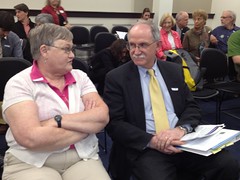Talking Dirt at EKU April 9th
We wanted to spread the word about this great event ($5 donation suggested) at Eastern on April 9th — bring yoru friends! “The Higher Ground series describes in nuanced tones and local accents the hard realities of life here in Harlan.” –The New York Times TALKING DIRT AT EKU APRIL 9TH ORIGINAL HARLAN COUNTY DRAMA COMES TO RICHMOND CONTACT: Robert Gipe, director, Appalachian Program, Southeast Kentucky Community & Technical College, Cumberland, KY. or . More information on Facebook here. The Center for Appalachian Studies at Eastern Kentucky University will present an original community musical drama, Higher Ground 3: Talking Dirt, Monday April 9th, 2012 at 6:00PM in the auditorium at the Student Services Building on the campus of Eastern Kentucky University in Richmond, Kentucky. Talking Dirt features a cast of forty musicians and actors from Harlan County, Kentucky and includes twelve musical numbers including soul, country, folk, bluegrass, and gospel songs as well as new songs by the production company. The play explores issues related to mining and decisions about the land. The play includes Kentucky coalfield migration stories, stories of young people deciding whether or not to leave the coalfields, and stories related to coalfield ethnic diversity. Talking Dirt also examines the way people talk to one another, the stories that are easily told, and those that are sometimes avoided. The house band for Higher Ground 3: Talking Dirt is The Kudzu Killers, who will also do a half-hour of music immediately before the curtain. Talking...
Read More


